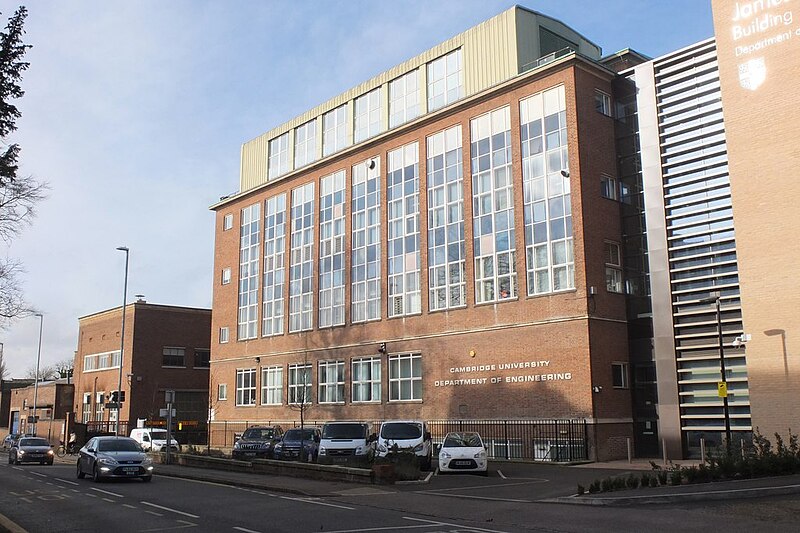
The UK government is set to fund thousands of postgraduate students specializing in biological, engineering, and environmental sciences at 45 universities across the country, aiming to foster a
new generation of experts and innovators.
£500 Million Investment for Over 4,700 Postgraduate Places
This landmark £500 million funding package will support universities and students, harnessing expertise that promises substantial benefits for both the UK economy and society. Previous investments have paved the way for life-changing discoveries and spinout companies worth millions, a trend this new initiative aims to continue. The funding will enable the next wave of world-class researchers in areas like biological sciences, engineering, physical sciences, and more.
The Science Secretary, Peter Kyle, announced today (Wednesday, 13 November) that thousands of postgraduate students will embark on studies in cutting-edge science as part of this initiative. This substantial government backing aims to bolster the UK’s higher education sector, leading to breakthrough discoveries and preparing a skilled workforce to fuel economic growth and improve lives well into the future.
Focused Support for High-Impact Areas
The funding will be allocated to fields where UK universities have shown particular strengths, empowering over 4,700 promising students across 45 top institutions to drive transformative research. Their efforts will range from developing next-generation medical therapies to advancing clean energy solutions.
The funding, distributed through the Doctoral Landscape and Doctoral Focal Awards by UKRI and launched on National Engineering Day, opens doors for talented students to delve into fields including biological, engineering, physical, and environmental sciences. Universities will receive funds this year, with prospective students applying in the upcoming months to commence studies next year.
Accelerating Innovation and Economic Impact
The funding bolsters the UK's reputation for academic excellence, providing universities with opportunities to commercialize discoveries that could generate millions for institutions and enhance their status as leading research hubs. This cycle of innovation and reputation-building attracts top researchers and opens further avenues for research funding in specialized fields.
Transformative Impact of Prior Funding Initiatives
Previous funding initiatives have already demonstrated significant real-world impact. Dr. Roland Leigh, a former PhD student at the University of Leicester, developed an air quality monitoring tool now used worldwide to mitigate air pollution’s harmful effects. As Chief Technical Officer at Earthsense, Dr. Leigh continues to combat one of the UK’s most significant environmental health risks, with Earthsense operating on six continents to reduce pollution’s link to chronic diseases such as asthma.
Similarly, past funding helped Ross Hendron, an Oxford University alumnus, found Wild Bio, a spinout that raised £12 million in seed funding – the largest-ever seed round for plant science in Europe. Wild Bio leverages plant biology and algorithmic analysis to accelerate the growth of staple crops like wheat and maize, aiming to tackle global food security and climate change challenges.
With this latest funding, UK universities and researchers are set to continue shaping solutions that not only promise economic gains but also improve global well-being, solidifying the UK’s role as a global leader in scientific and engineering advancements. Photo by Department of Engineering, Fen Causeway Cambridge by Jim Barton, Wikimedia commons.
Science and Technology Secretary, Peter Kyle, said:
“Backing the next generation of great scientific minds to fulfil their potential is crucial to unlocking the discoveries which improve our lives and keep our economy growing over the long term through highly skilled jobs.
This £500 million investment will support our vitally important higher education sector while supporting more bright students to pursue their talents and in turn deliver the life-saving drugs and clean energy alternatives of the future, that benefit all of our lives”.
Education Secretary, Bridget Phillipson, said:
“Our universities are vital engines of growth, and this government is backing them to cement this status by building a pipeline of skills that will drive the country’s economic recovery.
We have also been clear that we want to work with the higher education sector on a wider programme of reform, with Skills England helping ensure young people and adults have the training they need to access real opportunities in tomorrow’s economy, particularly those essential to advancing our clean energy goals and achieving a sustainable future”.
UKRI Chief Executive, Professor Dame Ottoline Leyser, said:
“UKRI’s investments in Doctoral Training are pivotal for the UK’s research and innovation endeavour.
The awards provide funding for Universities across the UK to nurture a cadre of creative, talented people to develop their skills and knowledge, to build partnerships and networks, and to pursue the discoveries that will transform tomorrow, with diverse benefits for society and economic growth”.
Dr John Lazar CBE FREng, President of the Royal Academy of Engineering, said:
“We warmly welcome this announcement on National Engineering Day, which celebrates the transformative power of engineering to shape the world around us and improve our lives. UK engineering research has a strong global reputation and today’s support from government is an investment in our future economy.
Research advances in engineering and science provide the foundation for new products and services that generate jobs and benefit society. Engineering traverses the modern economy and engineers are involved in almost every economic sector, including many ‘non-engineering’ industries like financial services and the media”.







































